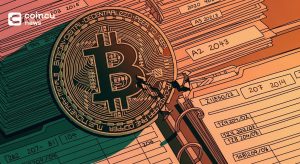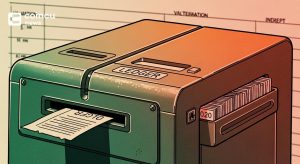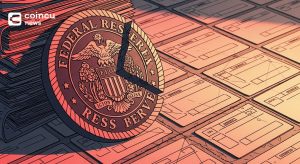Key Points:
- Russian State Duma Deputy Anton Tkachev has proposed creating a Russian Bitcoin reserve to mitigate the risks of sanctions.
- The proposal aligns with Russia’s broader push to incorporate cryptocurrencies into cross-border trade.
Anton Tkachev, a deputy in Russia’s State Duma, has initiated an idea to create a Russian Bitcoin reserve to increase the financial stability of the country against continuous international sanctions.

Read more: Former US Treasury Secretary Criticizes Trump’s 5-Year Bitcoin Reserve Plan
Anton Tkachev Suggests Russian Bitcoin Reserve
The letter to Finance Minister Anton Siluanov highlights how digital currencies can help avoid risks related to more traditional reserve assets.
In his letter, Tkachev pointed out that the classical reserves- the U.S. dollar, euro, and the yuan- are being highly subjected to inflation, volatility, and sanctions. Also, he stated that Bitcoin, a decentralized digital currency, has an advantage: it has no ties with the financial system of any single state, and it could, therefore, weather these adverse conditions of geopolitical tension.
Tkachev called for an assessment by the finance ministry about whether establishing a Russian Bitcoin reserve would be viable and delivering that to the government’s judgment. In the meantime, the Central Bank of Russia continues to study the application of cryptocurrencies in settlements with other countries as traditional systems become more remote to countries under sanctions.
The document cited Bitcoin’s recent high returns, including its $100,000 valuation last December 2024, as not only a safeguard for financial stability but also as a lucrative investment. Tkachev underscored that policy adjustments and inter-agency coordination were necessary to make the plan work, which may prompt other sanctioned countries to try their hand at a similar strategy.
Global Momentum Builds for Bitcoin as a Strategic Asset
If adopted, the Russian Bitcoin reserve could mark a significant shift in how nations approach financial sovereignty and resilience in the digital age.
Globally, interest in Bitcoin as a reserve asset is growing. In the U.S., Senator Cynthia Lummis introduced the “Bitcoin Act of 2024,” advocating for a national Bitcoin reserve. Former President Donald Trump has also expressed support for holding Bitcoin to enhance the country’s economic resilience.
| DISCLAIMER: The information on this website is provided as general market commentary and does not constitute investment advice. We encourage you to do your own research before investing. |






















